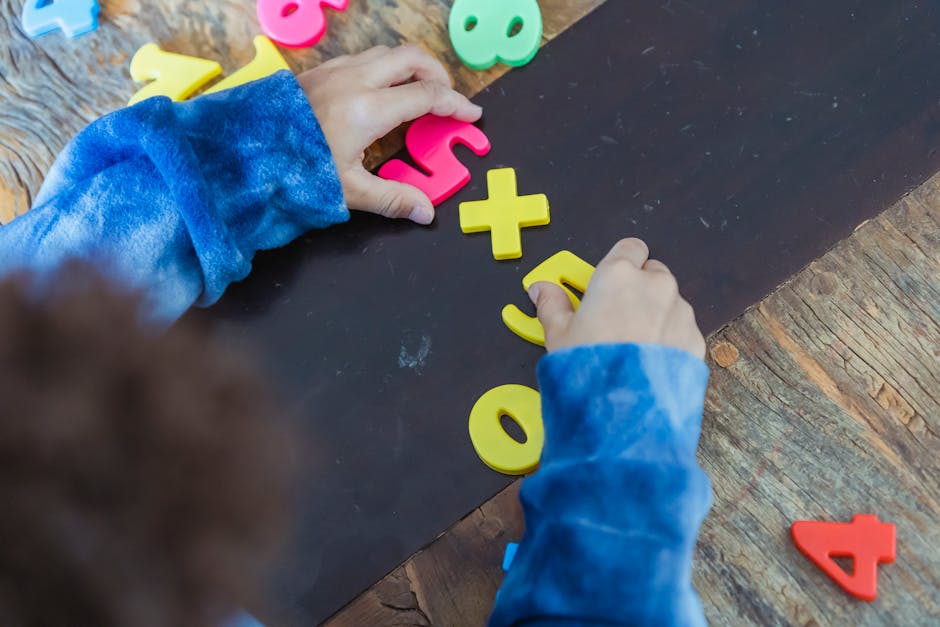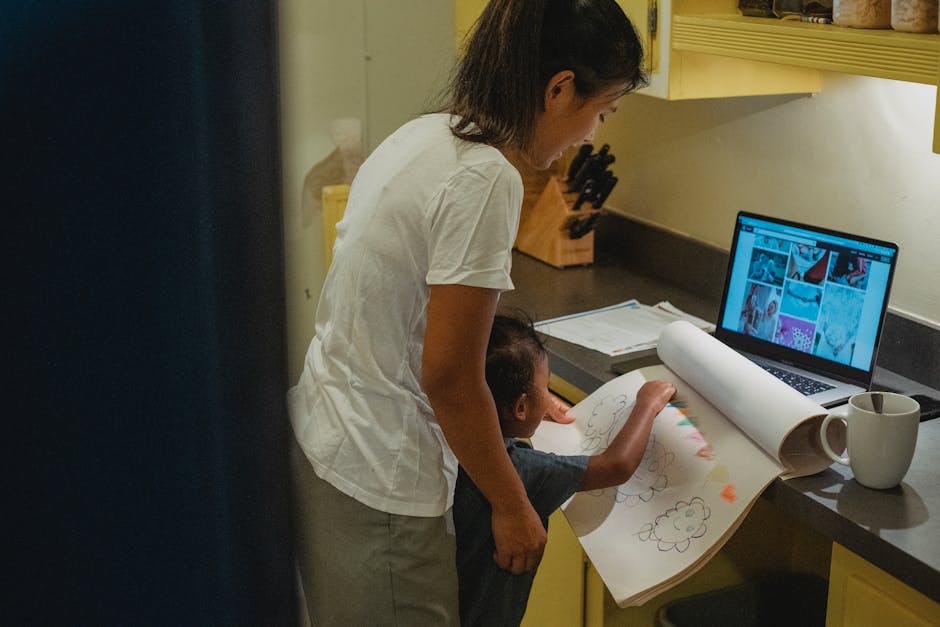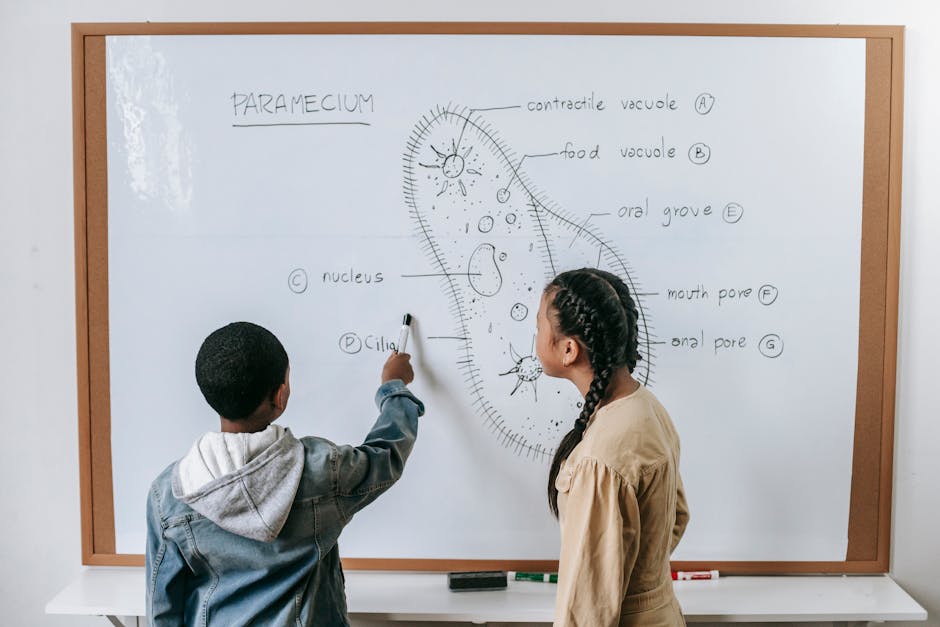Gifted Education And Talent Development
Understanding the methods and benefits of gifted education and talent development is crucial in today's competitive business landscape .
In this evolving business world , identifying, nurturing, and utilizing gifted individuals has the potential to make a significant difference in the overall growth and progress of a company.
To harness the potential of these exceptional individuals, implementing gifted education and talent development becomes essential . This not only results in a personal growth for the individuals but also dramatically uplifts their contribution to the company making it a win-win situation.
In the blog post, we aim to delve into the extensive subject of gifted education and talent development, pondering over its intricacies, merits and ways to effective implementation. We believe this post would be particularly useful for HR professionals, managers, and business leaders.
Importance of Gifted Education Programs

Gifted Education Programs are absolutely vital in today’s progressive society.
The best method to cultivate talent is to nurture it from a young age. Early immersion in Gifted Education Programs ensures that children are exposed to a challenging yet balanced curriculum , tailored to honour their unique needs.
These programs provide environment where gifted learners' intellectual capacity is recognized, fueled and guided. They provide differentiated instructions not typically available in regular classrooms. This allows gifted students to excel, fostering intellectual and emotional growth simultaneously.
Moreover, such programs map a way for them to connect with peers who share their academic abilities and interests. This fosters a positive and healthy socio-affective development, catalyzing confidence and positive self-esteem.
In essence, Gifted Education Programs are pivotal in identifying, nurturing and encouraging remarkable aptitude, ensuring that our future generation is replete with innovative leaders and creative problem solvers.
Identifying Talent in Young Learners
Identifying talent in young learners is a crucial step in shaping their future success. It involves recognizing potential and nurturing it to foster creativity and progress.
Often, talent can surface in unexpected ways - a knack for problem-solving, an innate understanding of complex concepts, or a natural creativity in expressing ideas.
Educators play an essential role in this process. By providing an environment that encourages curiosity and inquiry, they help young learners to explore their abilities and realize their potential.
Incorporating challenges and opportunities in their curriculum can also stimulate talent development , allowing learners to delve deeper into their interests and abilities.
In conclusion, while identifying talent in young learners may be a challenging task, it is undoubtedly a rewarding one. It consists of recognizing and nurturing potential, offering competitive learning opportunities , and establishing a conducive environment for talent discovery and development.
The Role of Teachers in Talent Development

Teachers play a critical role in talent development.
They identify giftedness, encourage students to pursue their interests, and provide the resources and tools needed to foster their talents.
Moreover, they serve as mentors, helping students in setting realistic goals and guiding them in the journey.
In classes, they employ advanced teaching strategies , differentiating instructions to cater to the needs of these students, and in return, stimulating their curiosity, creativity, and critical thinking.
At the same time, they play the role of advocators, communicating with parents and administrators about the importance of gifted education, thus creating an accommodating and stimulating environment for talent development.
In conclusion, the role of teachers is not limited to delivering knowledge. They encompass identification, sparking interest, advocacy, and mentorship, all of which are essential in the journey of talent development.
Challenges in Implementing Gifted Education

Implementing gifted education and talent development presents several unique obstacles .
Firstly, the difficulty in accurately identifying gifted individuals is a pressing concern. Standardized tests have been criticized for bias and not capturing the variety of ways students can exhibit giftedness.
Secondly, the cost of providing specialized education for a minority of students can be a heavy burden for schools with limited resources.
Third, balancing the needs of gifted learners with the rest of the student population is often a delicate task, as it may lead to social segregation or resentment.
Finally, there is a constant challenge of attrition - high achievers need continuous stimulus and challenge, or risk losing their edge. These are just a few hurdles in the journey to effective gifted education.
Techniques for Nurturing Gifted Children

In our mission to foster talent right from the grassroots, nurturing gifted children is a crucial aspect. These children require unique strategies to contribute to their intellectual growth.
One highly effective technique is differentiation. It involves altering the pace, level, or kind of instruction in response to the students’ readiness, learning style, or interest. This can ensure that gifted children are always engaged and challenged.
Another technique is the use of open-ended tasks. These allow multiple correct answers or methods, promoting creativity and analytical thinking.
Furthermore, keep these children motivated with regular intellectual challenges. Encourage curiosity and reward their tenacity.
Lastly, never forget the importance of emotional support. Gifted children are often more sensitive; reinforcing self-esteem and social skills can help ensure balanced development .
With the right nurturing, gifted children can reach their exceptional potentials.
The Impact of Gifted Education on Society

Gifted education greatly impacts society in multiple facets. It equips extraordinarily gifted students with valuable life skills, breeding a generation of intellectuals and innovators. These individuals often become prominent leaders in their respective fields.
Moreover, fostering gifted minds can powerfully impel advancements in science, technology, culture, and social reform. It's like nurturing the seed of an apple tree; its fruits will benefit the entire community.
In addition, it emphasizes the importance of diversity and inclusivity, promoting the acceptance of different learning abilities in academic environments.
However, it is crucial to strike a balance, ensuring other students aren't overshadowed or disregarded. Every mind is unique and has potential to contribute to society.
In conclusion, gifted education, when executed properly, has profound effects on societal growth and progression. It sows the seeds for a flourishing, forward-driving community.
Case Studies: Successful Talent Development Stories

In this section, we delve into the triumphant journeys of talent development that bear testament to the power of skilled education.
Firstly, we spotlight Enron Inc., a prominent firm that successfully invested in their employees’ growth. By offering comprehensive training , they enabled the team to spark revolutionary ideas that catapulted the company to the forefront of the energy industry.
Additionally, Google Inc. is another stellar example. Despite being a tech giant, Google has remained committed to continual talent development. Their relentless focus on nurturing employees' skills has resulted in groundbreaking innovations such as Google Earth.
Lastly, the transformation of Grameen Bank under Dr. Muhammad Yunus showcases the transformative impact of talent development. He emphasized employee education, leading to improved efficiency, and the bank's initiatives reaching a wider population.
These narratives underline the importance of building an environment that fosters talent development, ultimately driving progress and success.
The Criticism and Controversy Surrounding Gifted Education

Despite the positive intentions behind gifted education , it hasn't escaped controversy. Critics argue that these programs may contribute to a deeply-divided education system, perpetuating inequality.
Some believe that these programs favor affluent students who have essential resources. Others insist that the standardized tests used to identify "gifted" pupils are biased, thus failing to include diverse learners. On top of these, there's the psychological pressure such programs may create, pushing children towards perfectionism and causing disproportionate stress.
Contrarily, proponents say that gifted education caters to students' unique educational needs, providing them with challenges they wouldn't find in regular classrooms. Hence, the debate continues, creating a significant challenge for educational policymakers.
